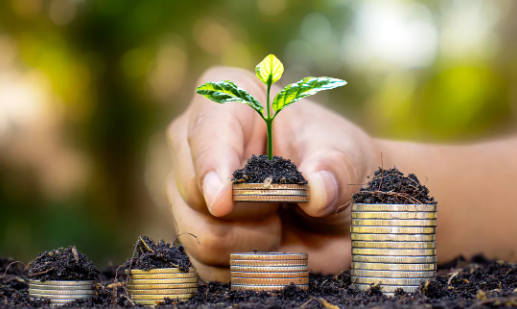
Businesses have never been under so much pressure to deliver on sustainability but balancing it with profitability is becoming increasingly complex in a world of geopolitical unrest and disinformation.
“We once had a client who said, ‘you can’t be green if you’re in the red.’ I think that’s a really important way to think about things,” said Amy Brachio, Global Vice Chair, Sustainability, at consultancy firm Ernst & Young (EY).
How can businesses be both profitable and sustainable?
Speaking at the Cannes Lions Festival of Creativity, Brachio told Euronews Business that the idea of creating an economy in which business, people and the planet can all thrive is currently “out of balance” with the reality of today.
“When you look at 2024, and what it means, businesses have to deal with a lot today,” Brachio explained.
“They have to deal with geopolitics and misinformation and the advancement of AI and sustainability and climate change. So, it’s making sure that we’re able to have this long-time view, while businesses are dealing with everything that’s coming at them today.”
But she believes it is entirely possible to be both profitable and sustainable, while recognising the growth at all cost era is over.
“Businesses have to manage their risks associated with sustainability. They need to think about what the regulatory requirements are. Are their customers asking for something different and how fast is that moving? Then they have to look at ways to innovate for the future.”
Consumers are willing to pay more for sustainable choices
In consumer research carried out by the IBM Institute for Business, 93% of respondents said the pandemic had influenced their views on sustainability. The following year, 49% of consumers said they had paid a premium, an average of 59% more, for products branded as sustainable or socially responsible in the previous 12 months.
“Consumer behaviour is really important with respect to sustainability and thinking about whether they’re willing to pay more for a sustainable planet,” said Brachio.
“Inflation and economic uncertainty have really created a challenge, even for those who want to make sustainable choices. They also have to think what will fit with their household budget.
“So, what businesses need to do is make sure they’re focusing on how you embed sustainability in a way that consumers can still afford and choose.”
Growing nature-positive economies
There’s also increasing pressure on businesses and economies to grow their nature-positive credentials, helping to reverse declining biodiversity.
According to the UN, the planet is experiencing its largest loss of life since the dinosaur era ended, with one million plant and animal species now threatened with extinction.
“We’re starting to see a shift to more focus on nature and biodiversity. We’re seeing new regulatory requirements that shine a light on transparency of the topic,” said Brachio.
“It’s making organisations step back and think, ‘what are the issues from a nature and biodiversity standpoint that matter to us? Is it water, is it loss of natural habitats, is it an impact that we have on air and what is it we need to do as a business to address those?’”
AI presents an ‘incredible opportunity’
Artificial intelligence (AI) has been a big talking point at Cannes Lions in recent years and continues to be a discussion-dominator, with questions raised around whether it’s a creative-killer or tool of new opportunity.
Brachio believes it presents an “incredible opportunity” to drive innovation and change, highlighting: “It can help you better predict weather patterns. It can help you identify where you might have a methane leak that needs to be addressed.”
But she also warns, “It comes with a lot of energy usage. So, as we’re thinking about AI, we need to think about how we use it for good, but also how we implement and build up data centres in a way that doesn’t further contribute to the issues we face.”
Article Credit: euronews